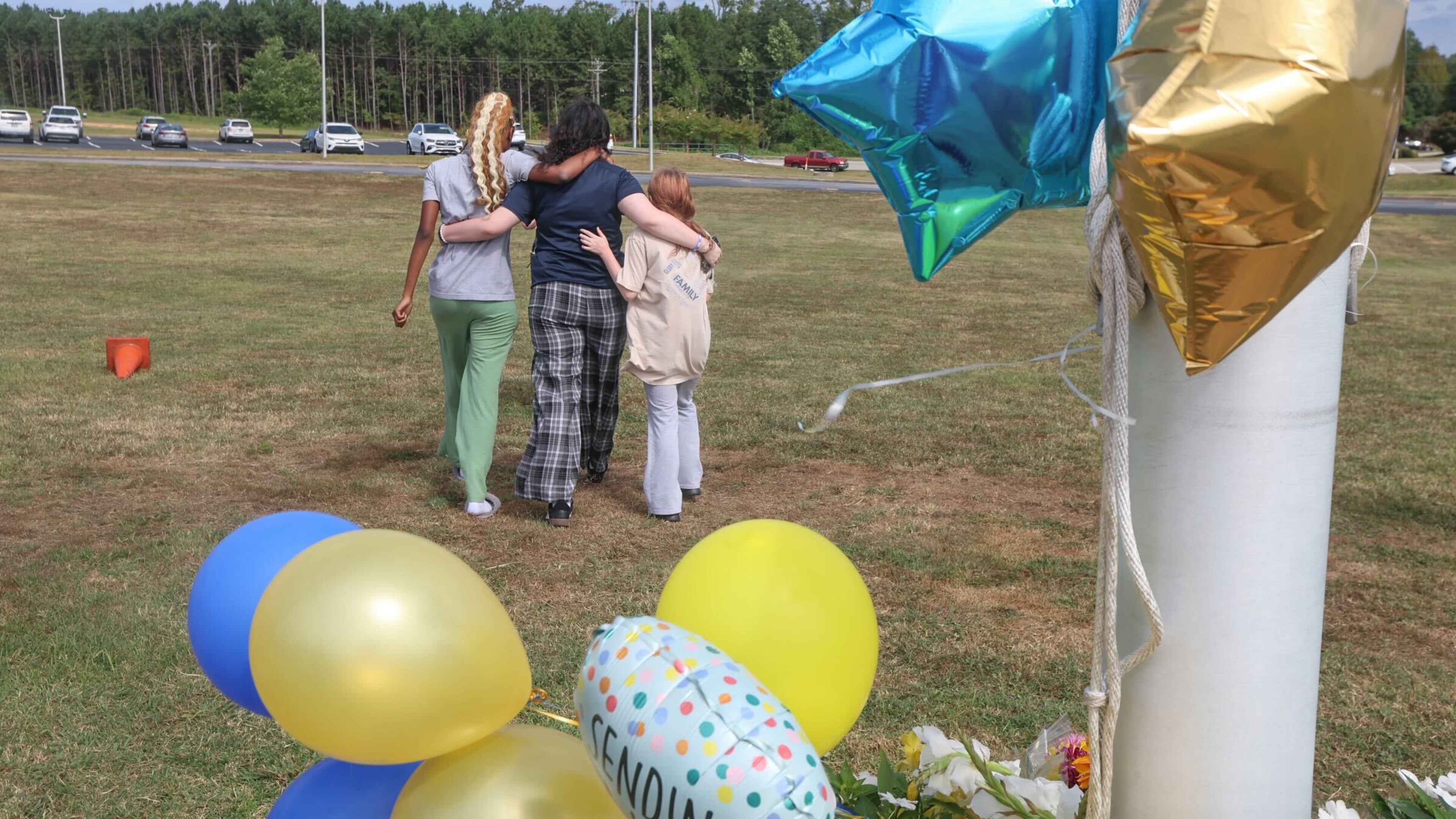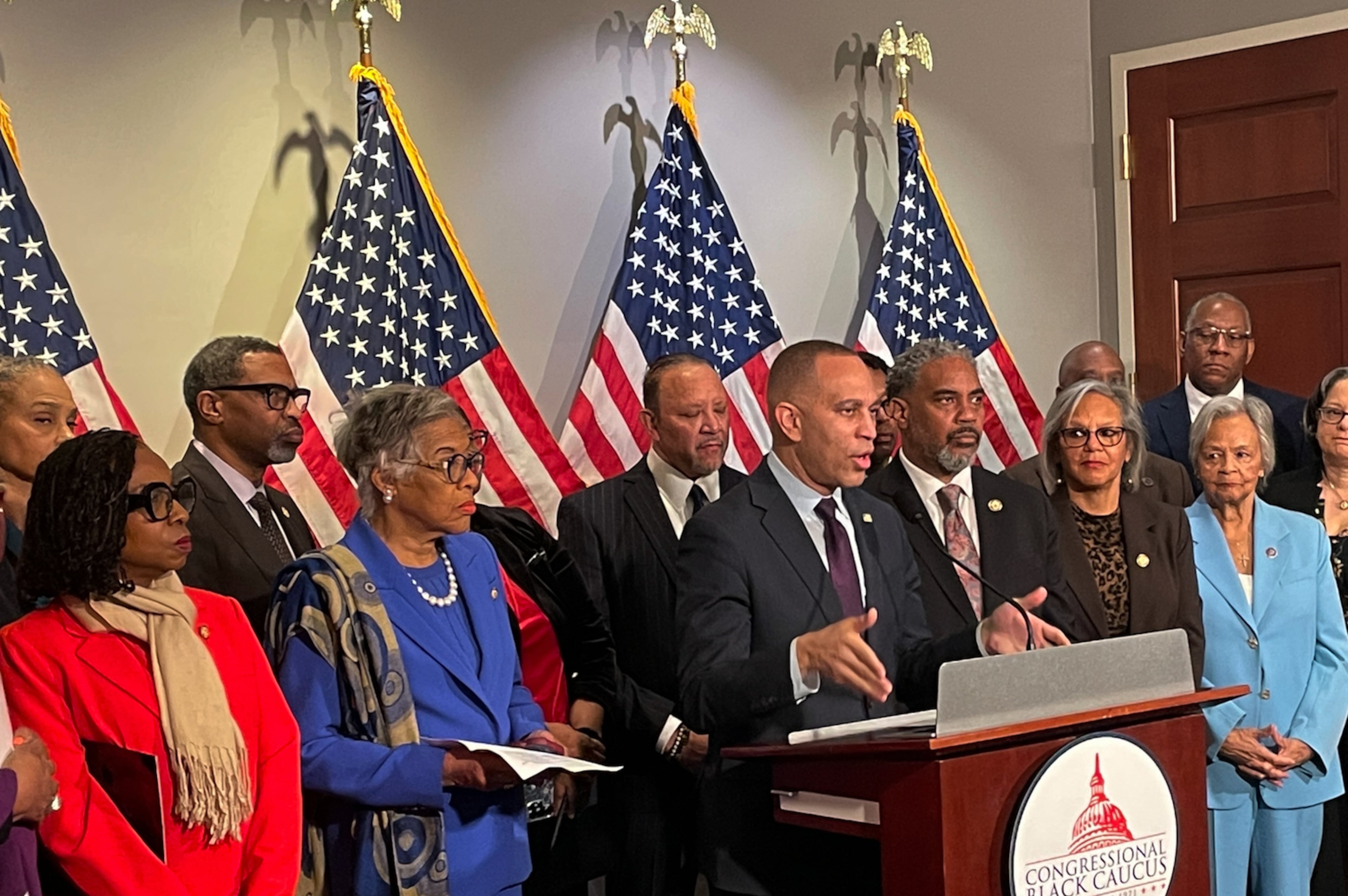Georgia students shouldn’t care more about gun safety than politicians

We stood together, a black circle under the sun. Each person dressed in a black T-shirt and leggings or denim, ignoring the sweat that prickled on necks and foreheads. It’s not practical to wear your darkest outfit in 94 degree weather, but we knew it was necessary.
Necessary because our state legislators and governor weren’t thinking about our safety when Georgia became a Stand Your Ground state in 2006. Or when they passed campus carry laws in 2017. Or made permitless gun ownership legal in 2022.

So now we had to think about our own safety — and force people in power to do the same.
Our school had allotted us the time between 10:07 and 10:22 a.m. to peacefully protest. Fifteen minutes to grieve and remember and try to make change. So we huddled together and watched 12 students march to the center of the group, holding handmade posters. Everywhere you looked, you saw scratchy letters: “Justice 4 Winder” and “POLICY NOT PRAYERS.” In front of me was one that began, “I will be attending college in four y-.” The last word disappeared under red hand prints and the image of the barrel of an assault rifle.
One student began to speak: “Sept. 4 shouldn’t have happened.” And reminded us that what happened at Apalachee High School — four people were killed and others injured in a shooting — could have happened at our school. Our morning routine mirrored theirs: Get out of bed, get ready, eat breakfast, tell your mom goodbye, go to school, head to class, come home. But unlike us on Sept. 4, Christian Angulo, Mason Schermerhorn, Coach Richard Aspinwall and teacher Cristina Irimie didn’t get to go home.
A member of the Forsyth Board of Education stepped into the circle, too. Gripping a sheet of printer paper rippling in the wind, she began to describe what an atrocity Apalachee was but promised that we were safe. We had tiplines, resource officers and mental health services. But, she recognized in her speech, those wouldn’t be enough. She called on our community to consider “an honest, apolitical, nonpartisan look at gun safety.” She concluded her time with a four-minute moment of silence.
A minute for every lifetime lost at Apalachee.
At first, there was a wave of camera shutters and crackling voices from the surrounding officers’ and teachers’ walkie talkies. Eventually, nothing. Even the surrounding cicadas that always seem to hum and screech in Georgia’s September grew silent. We meditated on what we had lost, but, more important, what we in our school, in our homes and in our state and national governments had to do.
And what we had to do, when the silence was over, was make ourselves heard.
When the four minutes ended, a student took the center and began to chant, “Kids not guns, kids not guns.” And though it started with just a few, the plea became a command, students yelling at the top of their lungs. Tears were shed and wiped and shed again, but students kept demanding, “Kids not guns.”
Five more times we shouted, before it became iterations of “Our blood is on your hands.”
“Our blood is on your hands.”
“Kids not guns.”
“Our blood is on your hands.”
“Policy not prayers.”
“Our blood is on your hands.”
“Policy not prayers.”
Before the loudest chant of all: “Justice for Winder.”
But then we heard the buzz of the school bell. Our 15 minutes of protest were up.
Slowly, students began to walk inside, but more stayed. Our time to grieve was over, but the signs demanding change stayed up. We weren’t finished grieving. We hadn’t moved on yet.
And I don’t think we ever will. I feel like it’s become a cliché, but until everyone gets the message, we need to keep repeating it: High schoolers want to think about high school things. Not guns. Not policy. Not dead bodies. Not fear.
But we know we have to because the people in power won’t.
I understand there have been promises made and calls for more school safety measures: crisis plans between schools and local law enforcement, resource officers, tiplines, mental health awareness, metal detectors, clear book bags. But legislators need to wake up and realize what the root of the problem is: Assault weapons and the lack of laws that encourage responsible gun ownership are not protecting our rights, they’re putting our lives at stake.
Students shouldn’t have to care more about their safety than the people in power whose job it is to keep us safe. But we’re forced to. And until our legislators and governor decide they’re going to care just as much as we do, I don’t think this is the end of student walkouts and protests.
Celina Simone is high school senior from Forsyth County. Her writing has appeared in Words Without Borders, Atlanta Magazine and other publications.

